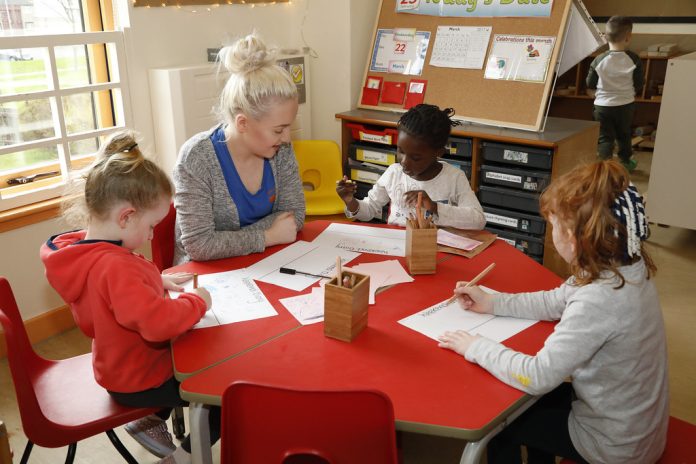Corinthia Ward, Birmingham North Socialist Party
A week after the Labour Party’s U-turn on its 2021 green pledge, the party has also announced that it’s scaling back its commitment on childcare.
At the start of the year, Bridget Phillipson, shadow education secretary, said that Labour would transform childcare with reforms on par with “the birth of the NHS”. Only some six months later, the party is claiming this is not ‘fiscally responsible’.
The UK has the third-highest childcare costs in the world. Some parents spend 80% of their take-home pay on childcare.
Exiting the workplace
The soaring costs mean many parents, in particular women, have to cut their working hours, or leave the workplace entirely. The number of women having to leave work to look after family has risen by 5% in the past year – a reversal of the trend of the last three decades.
Labour had said it would fund 30 free/affordable childcare hours for eligible parents from the end of parental leave. But now Labour is looking into other plans so they can “reduce their spending commitments”. It had already dropped a pledge from the Jeremy Corbyn 2019 manifesto of funding 1,000 Sure Start Centres.
Even the Tories are feeling pressured to make token gestures on childcare. Their pledge to extend free childcare hours for eligible parents from age nine months won’t fully kick in until 2025.
The Tories’ policy falls far short of what is actually needed – by nearly £2 billion! But if even the Tories are prepared to make these commitments, then why is Labour suddenly U-turning?
Keir Starmer is presenting Labour as a safe pair of hands for the bosses and their system, capitalism, by scaling back spending plans. This is not the first time Starmer’s Labour has played down voter expectations on what a Labour government could achieve.
Steve McCabe – Labour MP for Selly Oak in Birmingham – spoke at a childcare protest in October. He stated that a Labour government would inherit the Tories’ mess, and have to be “practical”.
When the Tories came to power in 2010, they claimed they had to ‘balance the books’ after the financial crash. This ‘balancing’ came out of the pockets of the working class via austerity. And any future ‘fiscal restraint’ from a Starmer Labour government would continue to do the same.
The UK is still the sixth-richest country in the world, and has 250 billionaires. It is not about where to find the money, but who has control of it!
Nationalise
Nationalisation – under workers’ democratic control – of the leading heights of the economy, like energy, rail, water and mail, would be a start to the redistribution of this hoarded wealth. Workers’ control of the childcare sector would also be needed as it has become increasingly dominated by international chains in a profit-led industry.
We need a new mass workers’ party prepared to fight for policies, such as universal childcare, and others, which are in the interests of the working class.
The money can be invested back into society, creating free, high-quality childcare, where staff are given inflation-busting pay rises, and paid at least £15 an hour. That way, families would have a better work-life balance. And the children would be given the best start into their education journey and development.
The cost of unaffordable childcare
- Women collectively lose £11 billion a year in forgone earnings through lack of affordable childcare.
- Providing 30 hours a week free childcare for children from six months, year-round, in England – bridging the gap to age three and covering the school holidays – would cost an additional £10.4 billion a year. At least three quarters of that could be recouped in increased tax revenue and lower benefits.
- 1.7 million women would like to work more hours, but can’t because of childcare problems. Another 1.3 million turned down a job for the same reason.
- The ‘free’ 30 hours is available only during term-time, leaving many parents scrambling to find help during school holidays. While the average cost of a week-long holiday club is £148, up 5% on last year.







